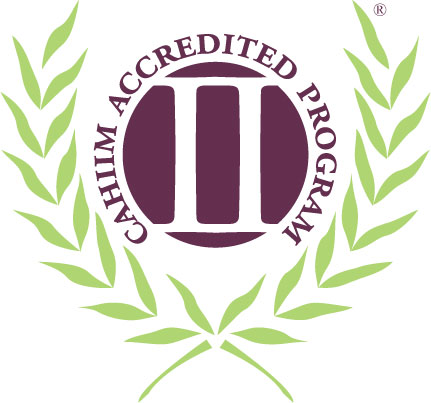Health Informatics and Information Management, AS
Program Inactive
We will no longer accept new enrollments for the HIIM AS program after December 31, 2024. The program continues to be CAHIIM accredited in an inactive status until all students graduate or until December 31, 2026, whichever comes first. Students who graduate prior to December 31, 2026, are eligible to sit for AHIMA’s RHIT credentialing exam.
The HIIM curriculum has been integrated into a new Health Informatics Specialization in the Bachelor of Science in Computer Information Systems program. Students may also be interested in the 12-credit Health Information Certificate program.
Learn more about Computer Information Systems: Health Informatics
Learn More About thr Health Information Specialist Certificate
Code diagnoses, protect patient privacy
Become a health information technician to code, analyze, secure, and maintain patient health information with an associate degree in health informatics and information management from DSU. You will be prepared to code diagnoses, process reimbursements, manage the release of information, protect patient data privacy, and assist in the building and enhancement of electronic health record documentation systems used by healthcare providers.
Upon successfully completing DSU’s online or hybrid health informatics and information management (AS) program, you will be equipped and eligible to take the national exam sponsored by the American Health Information Management Association (AHIMA) to earn the Registered Health Information Technician (RHIT) credential. DSU students achieved a 100% pass rate for 2021-2022. Competencies for the AHIMA Data Management Tracks and Revenue Management Track are included within the health informatics and information management (AS) program curriculum.
Online or hybrid courses
The Associate of Health Informatics and Information Management program is offered 100% online or on campus. Whether you are a traditional student or a working professional, this flexible program allows you to complete your degree how it works best for you, remote or hybrid, and as a full-time or part-time student.
Stackable credentials
The HIIMS programs are specifically designed to be stacked. From the certificates, associate's and bachelor's degrees to graduate certificate, and master's degree, you can earn stackable credentials, allowing you to advance your career while working in the field.
Why choose health informatics and information management at DSU
Exciting career paths with a degree in HIM
With an associate degree in health informatics and information management (HIIM), you can discover and explore a wide variety of career avenues in the health information management (HIM) field, to fit your professional goals at any stage in your career.
Watch the video to hear from health information management professionals about their career passion and impact in the healthcare field.
Become an expert in health informatics and information management
Develop skills with real-world projects
- Course projects replicate on-the-job situations and applications.
- Students complete supervised professional practice experiences at a healthcare or healthcare-related facility.
Master the art of coding guidelines and procedures
- Learn the coding guidelines and procedures to be an invaluable asset to employers.
- DSU teaches more complex diagnosis and procedure coding, preparing graduates to work in any healthcare system with the ability to code according to specific guidelines and insurance policies.
Bridge IT and healthcare professionals
- Develop an in-depth understanding of electronic health records with a technology-focused curriculum.
- Learn the foundation of health information systems and mangement of access permissions, governance of information (HIIPA), and requests for release of information.
Career preparation and accreditation
Prepare for exciting career opporunities in roles like health data analyst, clinical coding specialist, patient information coordinator, and physician practice manager. The Health Information Management accreditor of Dakota State University is the Commission on Accreditation for Health Informatics and Information Management Education (CAHIIM). The College’s accreditation for the Associate of Science degree in health informatics and information management has been reaffirmed through 2029-30.

DSU's associate, bachelor's and master's programs in HIIM are all accredited by the Commission on Accreditation for Health Informatics and Information Management Education (CAHIIM).
The associate and bachelor's progams are in CAHIIM inactivated status with a two-year teach out until Decemeber 31, 2026.
Students completing programs during the teachout peiord are eligible to take the national exam, which is sponsored by the American Health Information Management Association (AHIMA). You can also earn a Registered Health Information Administration (RHIA) credential.
Accreditation inquiries
All inquiries about the program’s accreditation status should be directed by mail to CAHIIM, 200 East Randolph Street, Suite 5100, Chicago, IL, 60601; by phone at 312.235.3255; or by email at info@cahiim.org.









